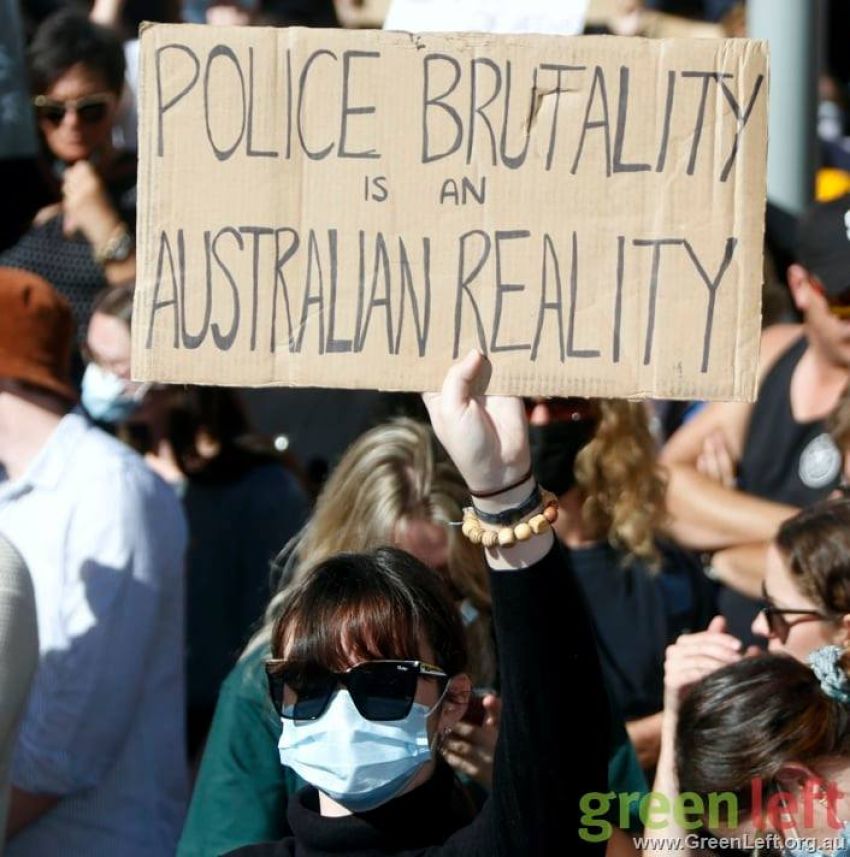
On June 6, as Australia and the world took to the streets in solidarity with Black Lives Matter protests in the United States, prisoners at the Bandyup Women’s Prison saw a Yamatji woman prisoner slammed to the ground by prison guards. After the assault, she was taken to a Perth hospital in a critical condition.
Like so many other Yamitji, the woman had been transported over 400 kilometres from Greenough Regional Prison near Geraldton to Bandyup Women’s Prison in Perth on June 5 because Greenough stopped accommodating women after riots over terrible conditions there in 2018.
Prisoners who witnessed the assault in Bandyup on June 6 told The West Australian newspaper the woman was seriously injured when she was “body slammed” by prison officers.
On June 8, the Western Australia Department of Justice announced it had conducted a preliminary investigation and found “no evidence of unreasonable force being used in the alleged incident”.
“The Department’s [internal] Professional Standards Division attended Bandyup Women’s Prison and were advised that the prisoner had been found trying to access a vending machine and was ushered back to her cell,” it said.
Noongar woman and Director of the National Suicide Prevention and Trauma Recovery Project Megan Krakouer and former chair of the First Nation’s Death in Custody Watch Committee Mervyn Eades visited the prison and talked to prisoners about what happened.
They told NITV on June 12 that prisoners at Bandyup confirmed they saw officers used excessive force on the woman, who was clearly very unwell when she arrived at Bandyup the day before.
The news of this latest abuse by the state of Western Australia has made me feel I have to write about my view on abolishing prisons. These abuses are growing, not declining, and this needs to change.
Most women in prisons have gone through violent or sexual abuse. These already vulnerable women are then subjected to more abuse from the state. They need people to start speaking out for them, not judging them.
As an advocate for First Nation women prisoners, especially Yamatji prisoners, I find the present situation disturbing. Prisoner numbers just keep growing and new prisons keep getting built. I have learned that the number of First Nations women being locked up is growing at a faster rate than any other demographic. These women, who have more than likely encountered an aggressive police officer or two, are taken from their children or, even worse, their children are put in state care. Prison breaks up families, causing more social issues back in the community.
Women detainees also face violations of their bodies via multiple strip searches. What the average Australian would call a violation of a woman’s body is done legally in prison. The prison system legally violates a woman’s body in the name of law and order.
I personally have not been to prison, but I have been inside the prison system since I was born. I am the daughter of a man who died in custody, and I have seen many of my family members locked away for social problems that could have been dealt with a better way.
I support prison abolition and while people are being locked away in cages, I will continue to be an abolitionist. There is not only a strong need to abolish the police force but an even stronger need to abolish the prison system. They work hand in hand, the police and prison systems.
l am a Yamatji woman and the daughter of a man who died in custody. I have often thought about what life would have been like if my dad been at home with his wife and kids when he passed, instead of in that hell hole of a prison.
What if my dad had access to programs that helped instead of hindered him? What if he was given the help he needed to keep out of prison and build healthy relationships with his family? These thoughts and others like them are what keeps me fighting for the cause of prison and police abolition.
[Deborah Green is a Yamatji woman and writer.]